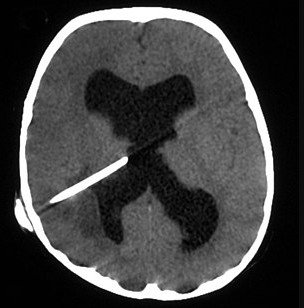What is a brain abscess?
Definition
What is a brain abscess?
A brain abscess is a condition that causes fluid buildup in the brain. The fluid appears to be caused by bacteria. Over time, the fluid will turn into pus and make space in the human brain. This is called an abscess in the brain.
Keep in mind, that the brain is part of the central nervous system of the body. The brain serves as a central source of computers, receiving, taking pictures and storing data from outside and feeding data.
The immune system, the brain, and surrounding tissue layers help protect the brain from infection. Even so, some bacteria and other organisms can pass through this protective layer and cause infection. When the brain responds to this disorder by making a small space filled with pus, this is called an abscess.

How common is a brain abscess?
Brain abscess is a rare condition and can occur at any age, but is more common in people aged 30-45 years. Risk increases if coincided with head trauma, substance abuse, diabetes, cancer, AIDS, severe illness, facial, ear, nose and eye infections.
When experiencing the disease, the patient should be taken to the hospital emergency department immediately. The use of antibiotics, conducted tomography (CT) and magnetic resonance imaging (MRI) will reduce the 10% mortality caused by brain abscess. Even so, nearly 50% of the disease progresses on the effects of the nervous system and behavioral aspects after therapy.
Signs & symptoms
What are the signs and symptoms of a brain abscess?
There are many signs and symptoms of a brain abscess. But the most frequent symptoms are fever, headache, and problems associated with the nervous system. Other problems include confusion, disorientation, difficulty moving and communication, neurological or weak status changes in the arms or legs. In addition, there are also other symptoms such as nausea, vomiting, neck stiffness, and seizures.
There may be signs and symptoms not mentioned above. If you have concerns about a particular symptom, consult your doctor.
When should I see a doctor?
You should call your doctor immediately if you have headaches, fever, convulsions, nervous breakdowns such as communication problems or a weak part of the body,
If you have any of the above signs or symptoms or any other questions, consult your doctor. Each person's body is different. Always consult a doctor to treat your health condition.
Cause
What causes brain abscess?
Brain abscess is a condition caused by bacteria. In addition, people with weak immune systems (such as people with AIDS) and frequent fungal infections can also cause the disease. Brain abscess is also a consequence of other diseases such as sinusitis, middle ear disease, dental disease, or from complications after surgical removal of tumors in the brain.
Risk factors
What increases my risk for brain abscess?
Brain abscess is a condition that has many risk factors, among others:
- The immune system is weak or damaged by diseases such as HIV, AIDS.
- Cancer, diabetes, or other chronic diseases.
- Congenital heart disease.
- Meningitis (inflammation of the lining of the brain).
- Drugs that interfere with the immune system (such as chemotherapy)
Not having a risk factor does not mean you can not suffer from this disease. This factor is just a reference. You should consult with a specialist for more details.
Medication & Treatment
The information provided is not a substitute for medical advice. ALWAYS consult your doctor.
What are my treatment options for brain abscess?
The use of antibiotics, abscess drainage surgery or removal methods can be used to treat brain abscesses. Sometimes antibiotics alone can treat the disease but in some cases, you need help from other treatments. In deciding an abscess drainage operation or method of appointment (if required) will be determined by the therapist.
For surgical complications such as worsening conditions, stroke, and infection, water consumption and antibiotic medications can treat it. If a fungus causes a brain abscess, a special drug will be used to treat it.
What are the usual tests for a brain abscess?
The doctor will diagnose based on a medical history, general physical examination, or CT brain or MRI outcome.
Treatment at home
What are the lifestyle changes or home remedies that can be done to cope with a brain abscess?
Here are the lifestyle and home remedies that can help you cope with brain abscesses:
Use antibiotics as recommended by your doctor. Spend the medicine.
Be aware that the diagnosis as soon as possible will affect the nervous system and behavior.
Obey the examination schedule, such as doctor's control and CT scan or MRI even if done repeatedly, to make sure the disease is cured.
If you have any questions, consult your doctor for the best solution of your problem.